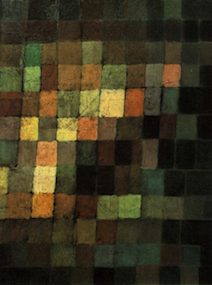Are there meaningful conceptual trajectories that can be traced between ancient Greco-Roman atomism, Spinozan monism, Humean empiricism, Marxian materialism, and…
Recovering the immanentist tradition

A cluster of terms delimits religion in contemporary debates by naming that which it is not: immanentism, naturalism, materialism, monism, and of course, atheism. One of these terms appears in the title of this website and the rest in many of its essays. Though they do a lot of heavy lifting, they rarely receive elaboration.
This forum proposes a return to the work of a set of authors from the Western tradition who have attempted to create a self-sufficient, coherent description of an immanentist world. We wager that within the prevailing trends of Western thought there is a tradition that has challenged the widespread assumption that any sound philosophical understanding of the world must necessarily culminate in “metaphysics” or “theology.” Moreover, in uniting the various strands of this tradition, we expect a new picture will emerge that offers a better account of a presence that has for too long been figured as an absence.
By recovering a positive presence within that which exceeds or negates the religious, we can, perhaps, initiate a new frame that moves beyond a historical dialectic and embraces a more complex intellectual ecology.
This forum was guest edited by Joseph Blankholm and editorial board member Carlo Invernizzi Accetti. -Eds.
Another story than the other story
What is reality? This is a question historians and philosophers can ask together. Let me use it to ponder the…
Lucretius and the immanence of motion
Lucretius was the first philosopher of immanence. It is he and not Democritus or Epicurus who holds this title.
Epicureanism and naturalism
How could material nature conceivably account for the order and purposes of nature, and, above all, for the adaptation of…
When was the monist century?
Why study the immanentist tradition?
More immanence, more Gods
The apparent battlefield is an old one, and the separation of philosophy from theology has a long history. Philosophy, in…
Secular, sacred, Yiddish, Jewish
In considering immanentism, it is difficult not to imagine it in religious terms. This is all the more so when…
Informatic cosmologies and the anxieties of immanence
What is the relationship between immanence and endings? Between theories of immanence and cosmological or ontological anxieties? And between immanence…
Essayism as radical immanentism
Immanentism is a metaphysics, but also a theory of the subject and an ethical stance. In this post I present…
The ghost of immanentism
If we should think past the division between secular and religious, and if secularism is merely the name for their…


















